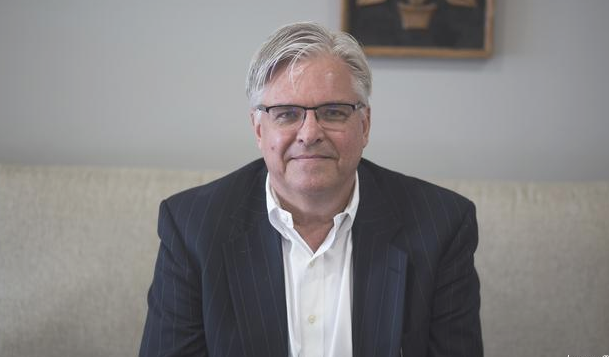Article from the Kansas City Business Journal: https://www.bizjournals.com/kansascity/news/2020/07/15/covid-19-brings-opportunity-for-coworking.html
By Leslie Collins Staff Writer, Kansas City Business Journal
iWerx CEO Bob Martin said he’s had a “front-row seat” to the ways the Covid-19 pandemic has affected small businesses. The coworking company, which has grown to four Kansas City-area facilities, has had to balance being a landlord that makes concessions on a case-by-case basis while also meeting the expectations of banks and its shareholders, he said. Some of its startup tenants haven’t survived.
“Even with no rent, these people packed it in. They were emotionally spent. They were financially withered and they didn’t see any future,” Martin said. “Those are the people I hurt for the most.”
But iWerx and another local coworking company, Plexpod, also are hurting. In April, revenue was “significantly down” for Plexpod, founder and CEO Gerald Smith said. It also recently lost four of its largest tenant members at Plexpod Westport Commons, 300 E. 39th St. in Kansas City.
“We just reached profitability last year. It’s not like we have huge reserves,” Smith said.
Smith has heard multiple tenants voice similar challenges — they either lost their biggest client or their revenue has been slashed.
An optimistic view
The pandemic’s financial impact on companies has cost both Plexpod and iWerx tenants. But both founders remain optimistic about the future and are starting to find a new opportunity: targeting corporate clients.
It rides a trend that started prior to the pandemic. The flexible office space concept is “rapidly gaining ground” among large enterprises, according to CBRE’s 2019 report on the state of flexible office space. In addition to flexibility, it offers cost savings and supports a swift move-in date.
During the second quarter of 2019, the flexible office supply grew 34%. In its 2019 report, CBRE projected that flexible office space could comprise 13% of the nation’s office supply by 2030.
“Once considered a niche offering, flexible office space has become a prominent component of building owners’ and corporate occupiers’ real estate strategies. As such, it represents a structural shift in office leasing that will survive — and perhaps thrive — in an economic downturn,” the report said.
Plexpod recently launched a corporate membership package that presents a variety of options, including dedicated team space, open desks and private desks. The company added another layer of convenience — the ability to use the meeting spaces at any of its four area locations. (It’s currently building out a fifth location inside the Flashcube building in Downtown.)
Prospective enterprise members have told Smith they’re aiming to whittle their current office footprint and want to offer alternatives to remote workers. Smith said Plexpod plans to open at least two more spaces Downtown, which would operate more as satellite locations with only team spaces or open desks. Members could access the amenities at the nearby Flashcube building.
Tweaking the marketing and model
iWerx previously relied on hosting a plethora of events inside its spaces to attract new tenants. But that marketing technique no longer works during a pandemic, Martin said. iWerx already has seen an uptick in demand for daily office rentals, and Martin expects to fill out newly empty spaces with corporate tenants looking to reduce overhead.
“As work from home grows, there’s still going to be a need for places for them to assemble,” Martin said.
Plus, some employees don’t have adequate work spaces at home, and meeting in person fosters innovation.
Julie Whelan, CBRE’s head of occupier research for the Americas, also foresees growing interest from enterprise companies. With companies trending toward a remote workforce, it could be a tailwind for flexible office spaces that can offer private suites, she said.
Although the pandemic has created challenges, Whelan thinks it ultimately will lead to “long-term gain” in the flexible office space arena. During economic downtowns, flexible office space bounces back quickly, she said.
But moving forward, Whelan thinks the model will shift. Traditional leases between the landlord and flexible office space operator have placed all of the risk on the operator. And it’s particularly tough to stay afloat when the operator is shedding clients during a downturn. She envisions a more sustainable model will emerge, which could come in the form of a partnership that includes revenue sharing or a management agreement in which the landlord has full control of the space but brings in a third-party operator.
Smith said his No. 1 phone call now is from developer partners looking for a coworking facility operator. If it’s the right fit, Plexpod is open to the idea. It already collaborated with developer Worcester Investments on its coworking space inside the Flashcube building.
“The future of coworking is bright,” Smith said.
Martin echoed his sentiment.
“I”m excited about where we’re going,” Martin said. “I’m not focusing on the revenue we lost. I’m not focusing on the members that transitioned away from us. I’m focusing on the this as a brand new business: How do we build it?”

